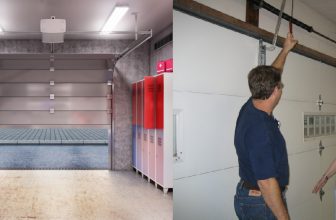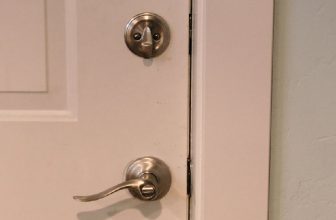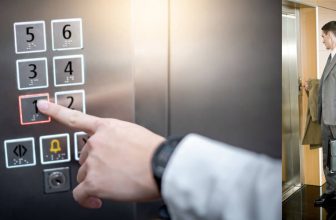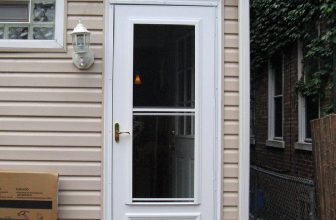How to Fix a Noisy Garage Door
Having a noisy garage door can be incredibly annoying, not to mention difficult to fix. You may even find yourself waking up in the middle of the night due to the loud squeaks and rattles as your door opens and closes. Many people assume that if their garage door is making noise, it needs to be replaced, or they have no other option than to suffer through this inconvenience.
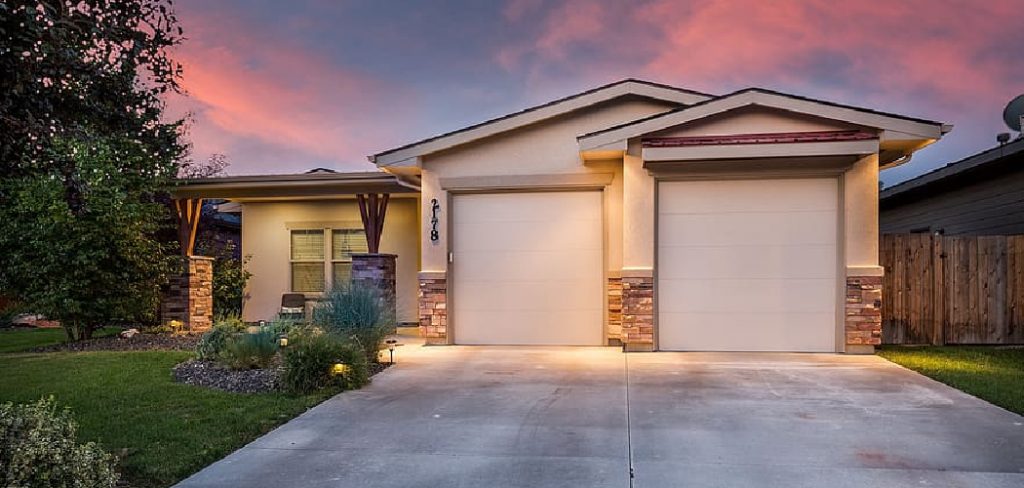
Fortunately, there are things you can do yourself which will help reduce those irritating noises coming from your garage door. In this blog post, we’ll discuss several tips on how to fix a noisy garage door.
Step-by-Step Guidelines on How to Fix a Noisy Garage Door
Step 1: Lubricate the Moving Parts
Use a lubricant spray, like WD-40 or silicone oil, to lubricate all of the moving parts on your garage door. Pay special attention to metal rollers and hinges, as these parts cause the most noise. If you have an automatic opener, make sure you also lubricate the tracks and chain. Lubricating will help reduce the friction between each part, making your garage door quieter when it opens and closes.
Step 2: Tighten Loose Parts
Check all the screws, bolts, fasteners, and hinges to ensure they are tightened properly. If any of these parts are loose, they can cause your garage door to be noisy as it moves back and forth. Use an Allen wrench or a screwdriver to tighten these parts. Ensure you don’t over-tighten them, as this can cause damage to the door.
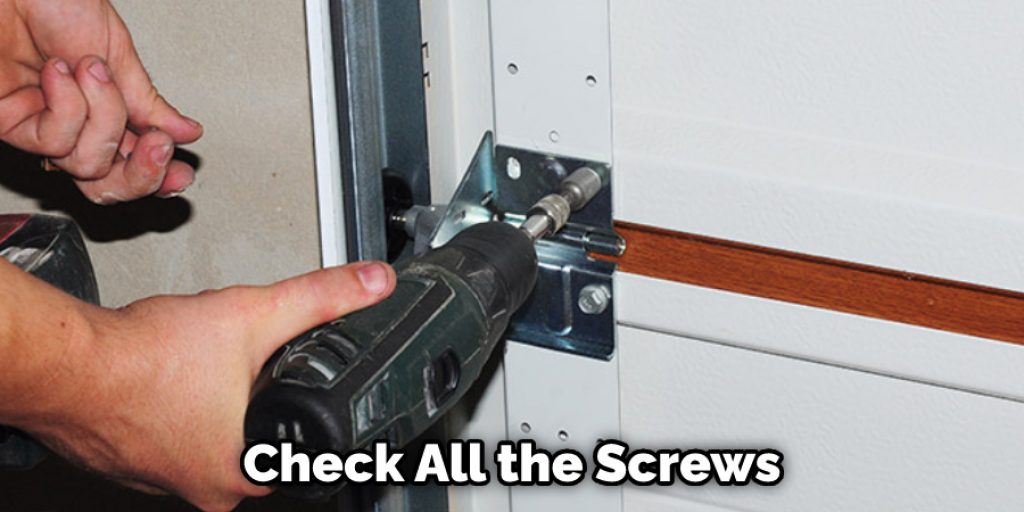
Step 3: Replace the Rollers
If your garage door has old, worn-out rollers, they may be causing the noise that you hear. Consider replacing the rollers with newer and sturdier ones. This will help reduce noise and make sure your door operates more smoothly. Replacing the rollers can be done without professional help and is a relatively simple process. It’s easy to find the right rollers for your garage door online.
Step 4: Balance the Garage Door
If your garage door is out of balance, it can cause a lot of noise when you open and close it. To check if your door is balanced, disconnect the automatic opener and manually open the door halfway. If it stays in place, then the springs are properly balanced. If not, you may need to adjust the springs.
By following these step-by-step guidelines, you should be able to reduce the amount of noise coming from your garage door. Pay attention to any worn-out or loose parts, as they could be causing the issue. If all else fails, contact a professional for help. They’ll be able to diagnose and fix your noisy garage door quickly and efficiently.
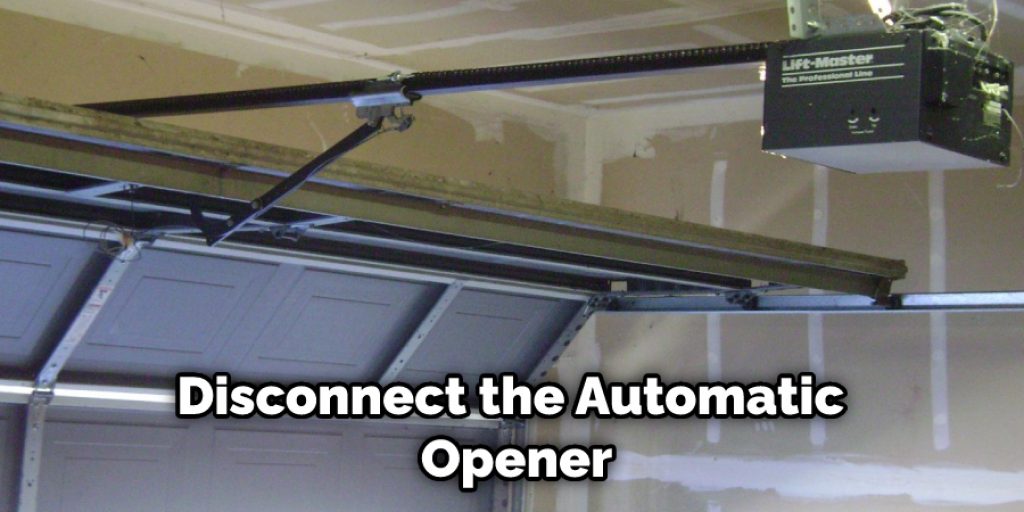
Tips and Tricks to Fix a Noisy Garage Door
- Inspect the garage door rollers and hinges for worn or damaged parts. Replace any rusty, broken, or cracked roller wheels with new ones. Tighten loose screws or bolts on hinges that are causing the noise.
- Lubricate all door moving parts, including bearings, springs, and tracks, with silicone lubricant spray. Doing this will help reduce the amount of friction, thus eliminating grinding and squeaking noises when the door is in motion.
- Inspect your garage door opener for worn or damaged parts and any debris or dirt that may obstruct movement. Clean off excess dirt and dust from gears and chains with a damp cloth, and lubricate them with a liberal application of oil.
- Tighten loose screws or bolts on your garage doors openers systems, such as those in the chain drive and motor assemblies. This can help reduce rattling noises caused by vibration during operation.
- Inspect your weatherstripping for any cracks or tears. If the weatherstripping is in poor condition, replace it with new weatherstripping to prevent air and noise from entering through gaps around the door.
- Place acoustic sealant on the back of your garage door panels in order to reduce outside noises coming into the area when the door is open or closed. Acoustic sealant is designed to reduce sound transmission, thus eliminating unnecessary noise.
- 7. If your garage door is still making too much noise, you may need to replace the entire garage door opener system with a quieter model. This will help keep the overall operation of your garage door quieter and more efficient.
Following these tips and tricks should help reduce the noise your garage door produces, allowing for smoother and quieter operation. However, if you find that any of these tips do not work, it may be time to contact a professional to assess the situation and provide further advice on how to fix your noisy garage door.
Things You Need to Follow for Fixing a Noisy Garage Door
1. Check the Rollers and Hinges:
The rollers and hinges are what allow your garage door to open and close, so it is important to check them for any wear or damage that could be causing the noise. Check all of the hinges connecting each garage door panel to ensure they are properly lubricated with oil and in good condition. If necessary, replace the rollers or tighten any loose parts.
2. Check the Motor and Tracks:
If your garage door is still making noise even after checking and lubricating the rollers and hinges, you may need to check the motor and tracks of your garage door system. Pay attention to any areas where two metal parts are rubbing together, as this can cause a lot of noise. Use oil or grease to lubricate the motor and tracks if necessary.
3. Balance Your Garage Door:
If the noise is still persisting, then it is likely that your garage door isn’t properly balanced. Check out our guide for balancing a garage door for more information on how to do this yourself, or you can call a technician to help adjust it.
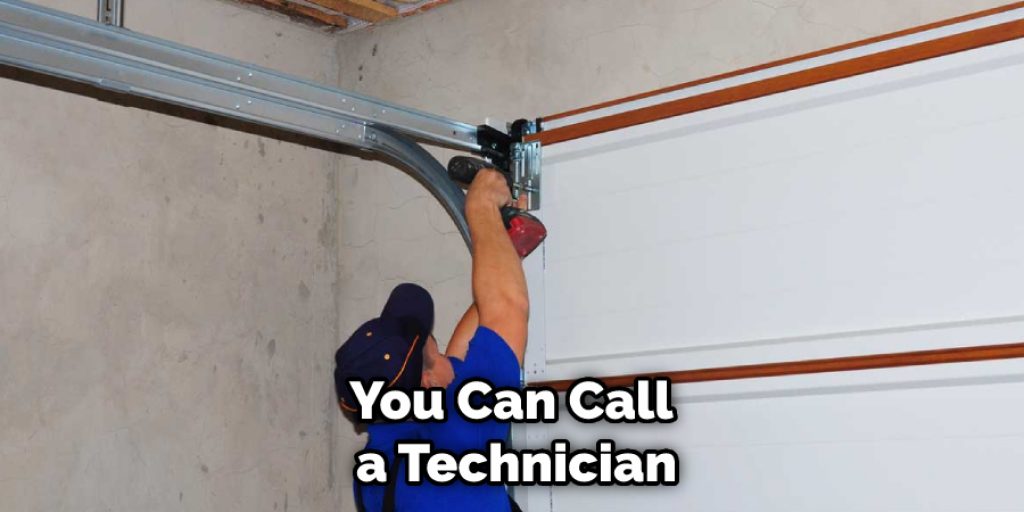
4. Check for Loose Parts:
If the noise persists after fixing rollers, hinges, motors, and tracks and balancing your garage door, it is possible that one of its parts is loose or worn out. Check screws, bolts, cables, and springs for any signs of wear or tear and any signs of rust and corrosion. Replace or repair any loose, worn-out, or corroded parts.
5. Replace the Weatherstripping:
The weatherstripping at the bottom of your garage door helps to keep out the elements and prevent noise, so it is important to check it periodically for wear and tear. If necessary, replace the weatherstripping to help eliminate the noise coming from your garage door.
Considering these considerations, you can ensure that your garage door functions correctly and runs silently. If the noise persists after attempting all of these steps, it may be time to call a professional to inspect your garage door system. Good luck!
Frequently Asked Question
What Materials Do I Need for Fixing a Noisy Garage Door?
If the noise is coming from worn parts, you will need to replace them. Generally, these include springs, hinges, and rollers. Check if your door needs additional materials, such as insulated rubber backing or weatherstripping, before replacing any existing parts. Additionally, it’s recommended that you use lubrication spray on any moving parts before installing new parts. Lastly, ensure a step ladder or workbench is ready for easier access to the garage door.
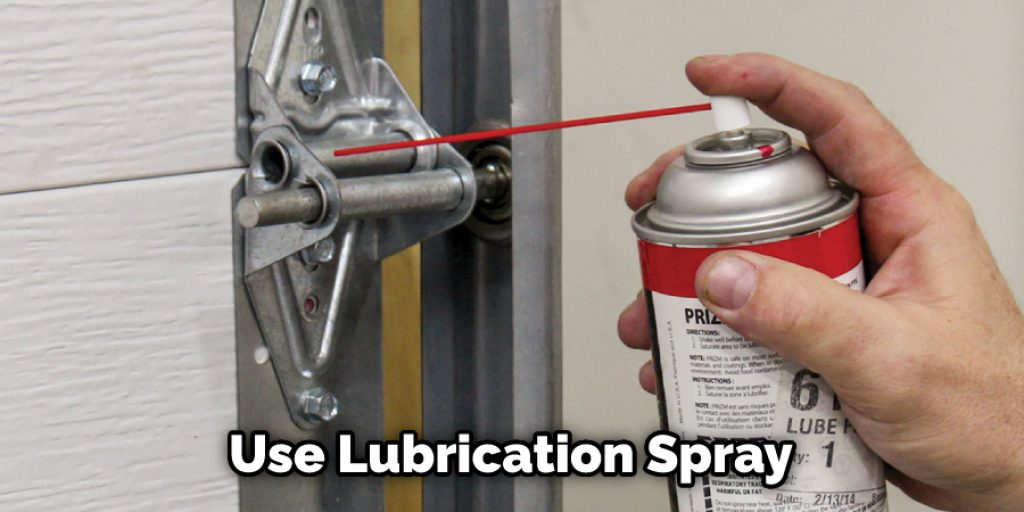
What Tools Do I Need for Fixing a Noisy Garage Door?
You will need basic hand tools such as pliers, wrenches, screwdrivers, and drills to replace any of the parts. Lubrication spray and a lubricant such as WD-40 are also essential for ensuring the new parts move smoothly and don’t cause further noise. An adhesive may be necessary to secure these materials if you’re using insulated rubber backing or weatherstripping. Finally, it’s important to have safety goggles and gloves to protect yourself from any debris or sharp edges.
Is it Safe to Repair a Noisy Garage Door?
Fixing a noisy garage door is safe as long as you take the necessary safety precautions, such as wearing protective gear and using common sense when working with tools. Ensure all the parts are securely attached before testing the door. Also, never attempt to repair a garage door if you don’t feel comfortable, and consider calling a professional for help. Keeping children or pets away from the work area while you repair the door is also important.
Conclusion
Repairing a noisy garage door is a simple process that doesn’t require a great deal of knowledge. However, if the noise persists or you don’t feel comfortable attempting the repair yourself, it’s important to enlist the help of a professional garage door technician. With their expertise, you can know how to fix a noisy garage door and easily identify and rectify any problems you may be having with your system.
Remember that by regularly inspecting your garage door for damage and performing routine maintenance, you can prevent breakdowns and other issues from occurring in the future. Fixing a noisy garage door can seem overwhelming at first, but following these guidelines means you’ll be back to quiet operation in no time.

